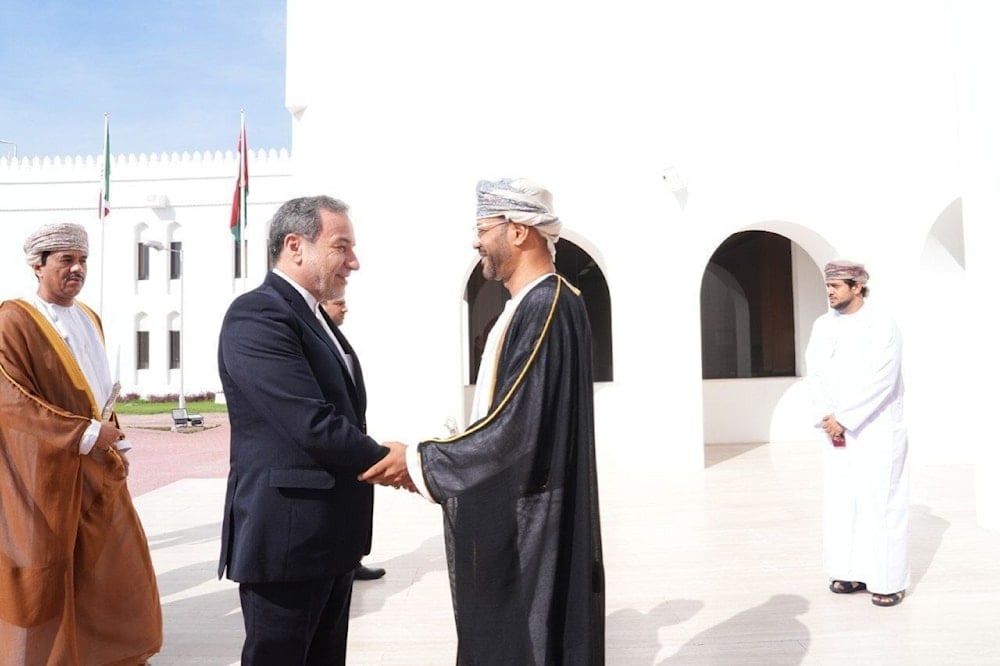No grounds for indirect talks with Washington: Iran FM via Oman
From Muscat, Iranian Foreign Minister Abbas Araghchi affirms that Oman has consistently played a positive role in mediating talks between Tehran and Washington.
-

Omani Foreign Minister Badr bin Hamad Al Busaidi receives his Iranian counterpart Abbas Araghchi in Muscat. (IRNA)
Iranian Foreign Minister Abbas Araghchi announced on Monday that the country has suspended indirect talks with the United States due to the current regional circumstances.
He stressed that "there is no conducive environment for such exchanges at this time."
During his visit to Muscat, the capital of the Sultanate of Oman, Araghchi stated that Oman has consistently played a crucial role in addressing regional issues and has sought to foster positive dialogue between Iran and the United States, serving as a channel for messages and laying the groundwork for negotiations.
He also emphasized that "once we navigate through this current crisis, we will determine whether to resume the process of exchanging messages with the United States and outline how we will proceed."
'We don't want war, but we are ready for it'
He addressed the United States and European countries, stating, "Iran's position is clear: we do not seek war, but we are prepared for it," adding that diplomacy must work to prevent any further escalations in the region.
Araghchi noted that Oman facilitated the indirect negotiations referred to as the "Muscat Negotiations," during which indirect communications occurred between Tehran and Washington through Oman during the administration of the martyr Ebrahim Raisi.
He also stressed that relations between Iran and the Sultanate of Oman are based on friendship, mutual respect, and cooperation on many issues that bring the two friendly countries closer.
Earlier today, Araqchi urged his Omani counterpart, Badr bin Hamad Al Busaidi, to take swift action to stop the genocide and aggression carried out by the Israeli occupation against the Gaza Strip and Lebanon. He called for "greater efforts to facilitate the delivery of international humanitarian aid to the refugees."
He conducted a regional tour that included Lebanon, Syria, Saudi Arabia, Qatar, and Iraq, carrying a clear message to the region and the world: that we are committed to "stopping the escalation and establishing peace in the region amid the rising tensions and ongoing developments."

 2 Min Read
2 Min Read








